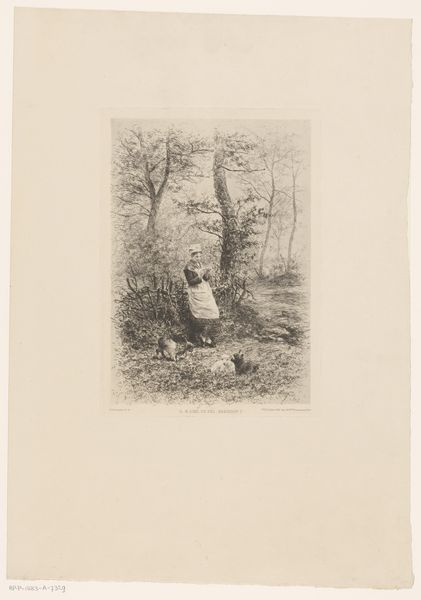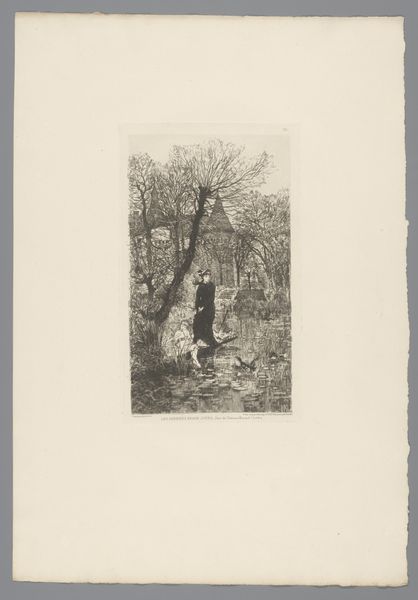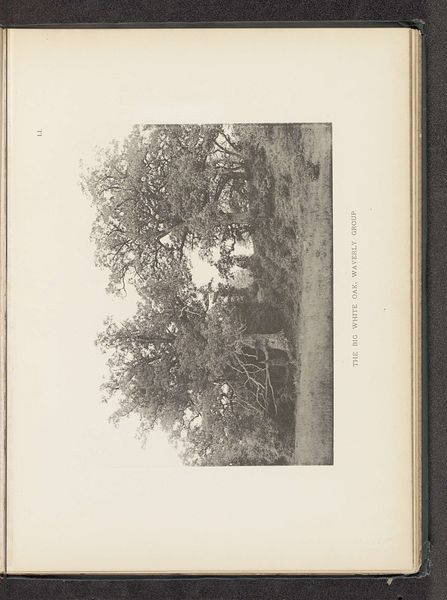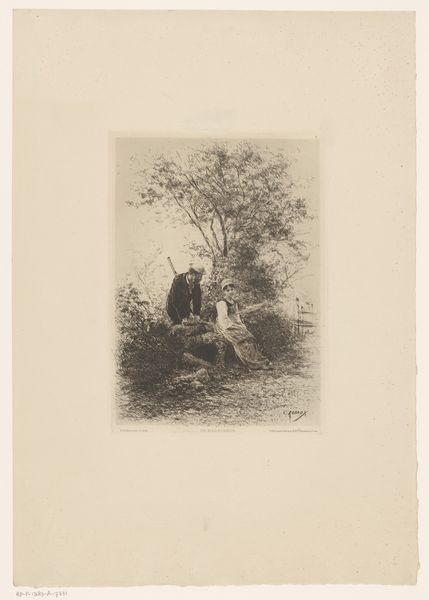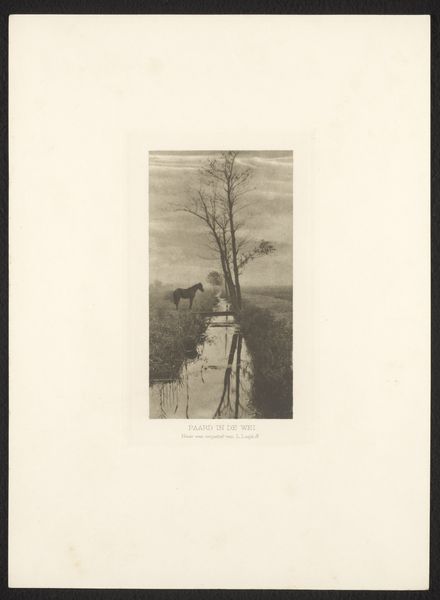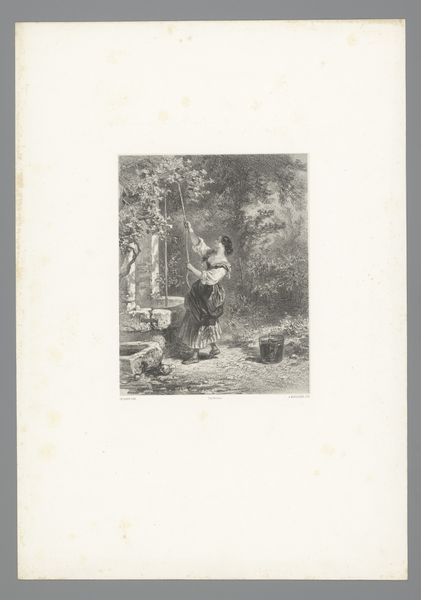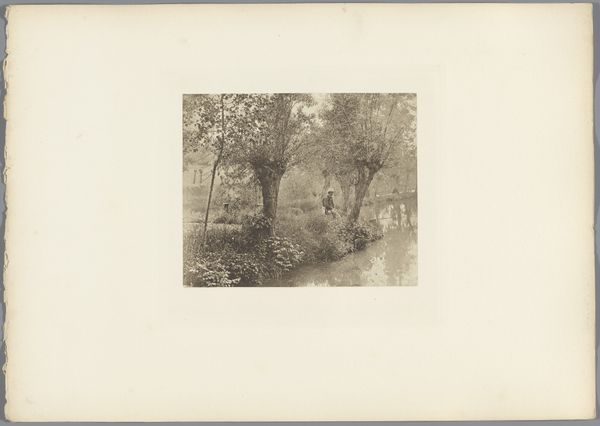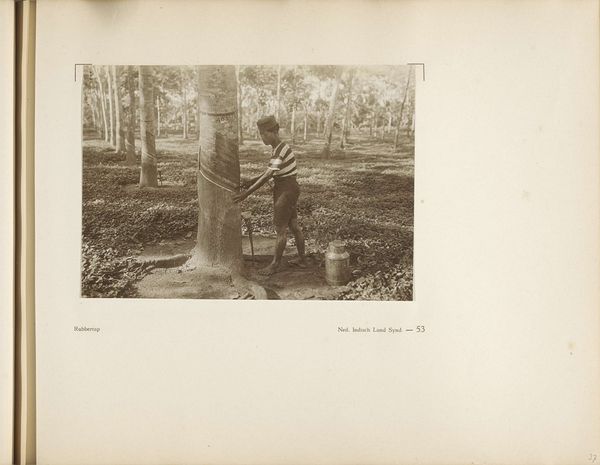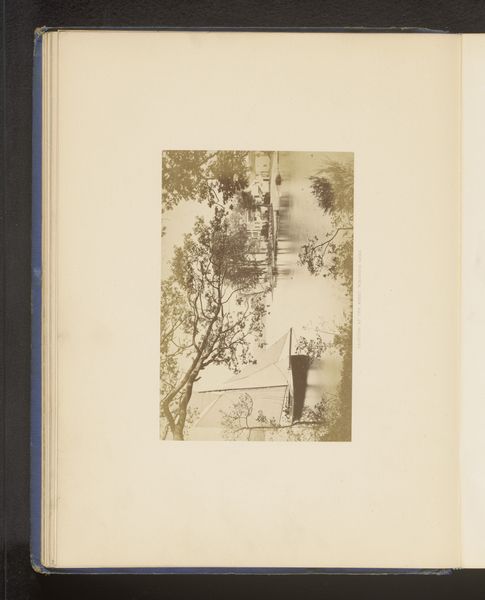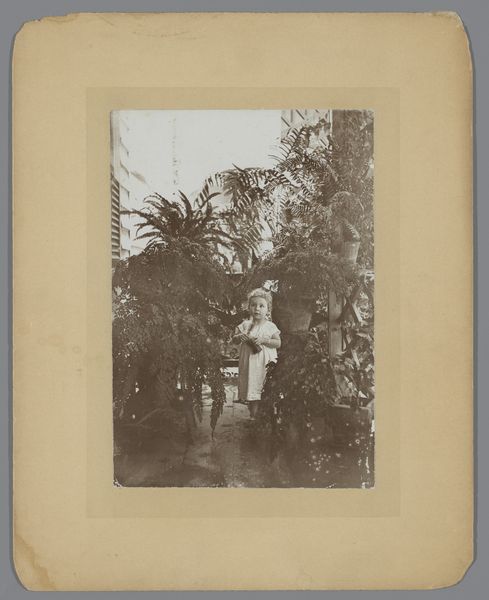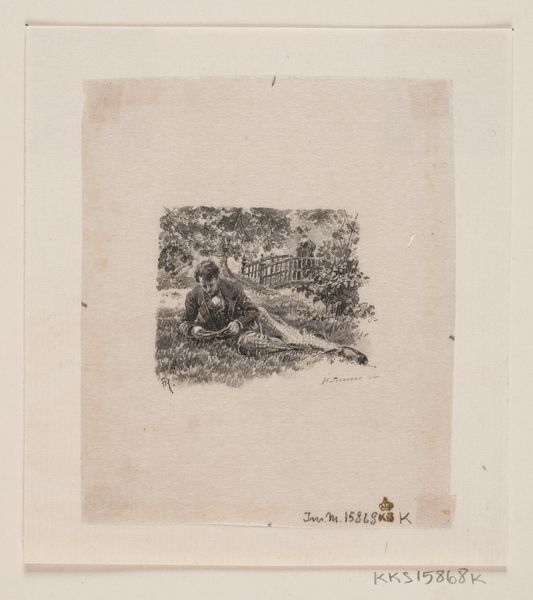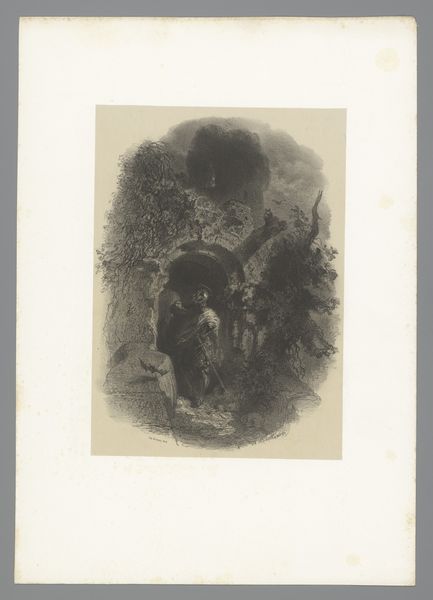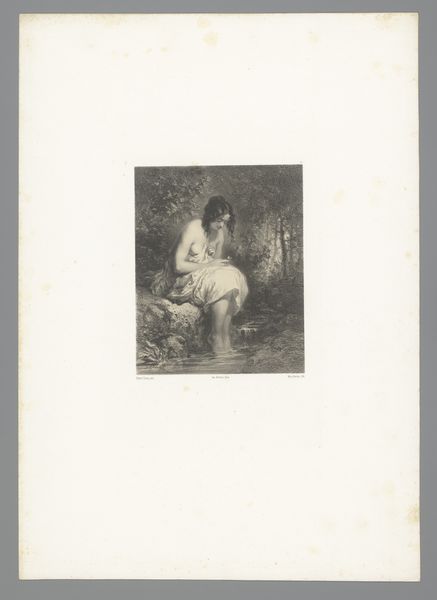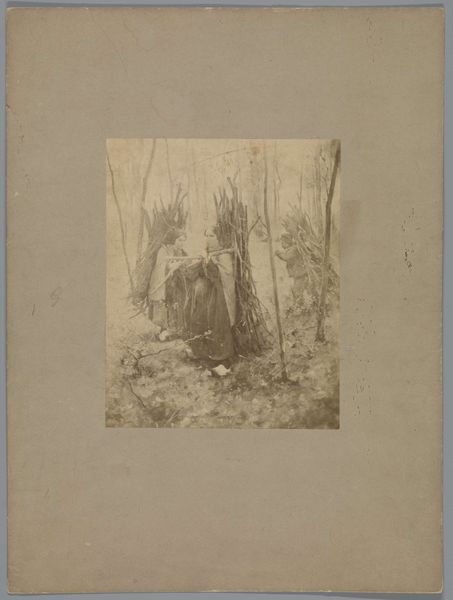
Boerin op de rand van een waterput, kijkend naar een bloem in haar hand 1874 - 1882
0:00
0:00
edmondadolpherudaux
Rijksmuseum
drawing, print, etching, pencil
#
pencil drawn
#
drawing
# print
#
etching
#
landscape
#
figuration
#
pencil drawing
#
pencil
#
pencil work
#
genre-painting
Dimensions: height 278 mm, width 199 mm
Copyright: Rijks Museum: Open Domain
Edmond Adolphe Rudaux created this etching of a ‘Farmer’s wife at the edge of a well, looking at a flower in her hand’ in the 19th century. The etching process is rooted in the layering of labor, and the repetitive actions performed by the artist to translate an image into a reproducible matrix. Here, we see the cross-hatching which builds up tonal depth, using finely incised lines on a metal plate. This linear approach to building an image creates a unique optical effect, one very different from the way that a painting or drawing renders form. The labor is built into the image. Rudaux’s choice of subject, a woman at work, connects the print to wider social issues of labor. Consider the labor of agricultural work. The artist draws our attention to the beauty found in everyday life. Thinking about materials, making, and context helps us to understand this artwork, challenging traditional distinctions between fine art and craft.
Comments
No comments
Be the first to comment and join the conversation on the ultimate creative platform.
